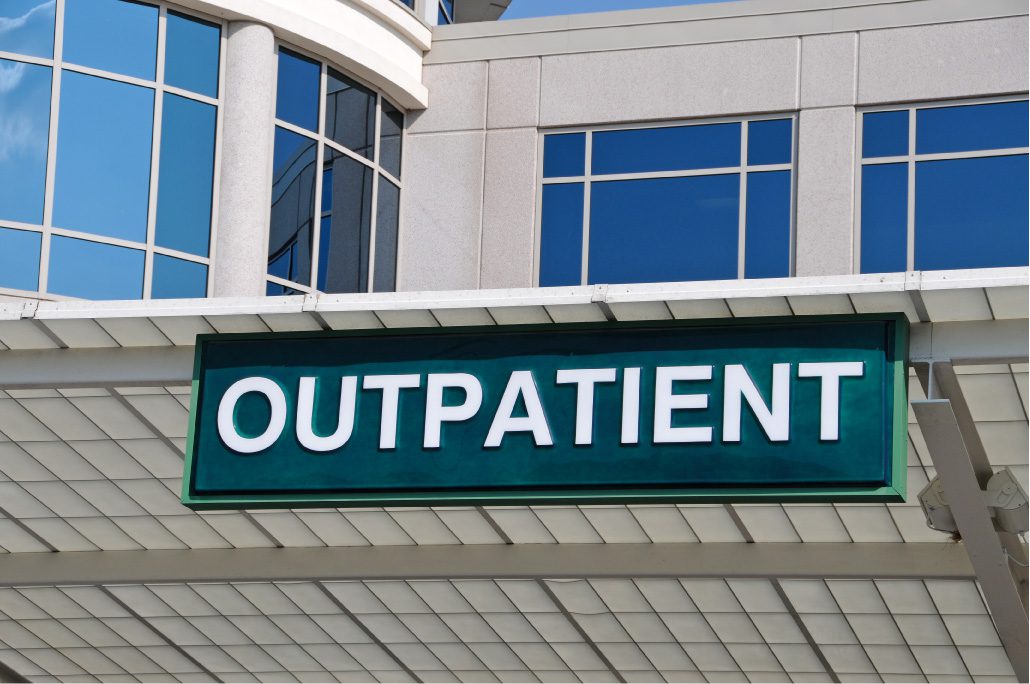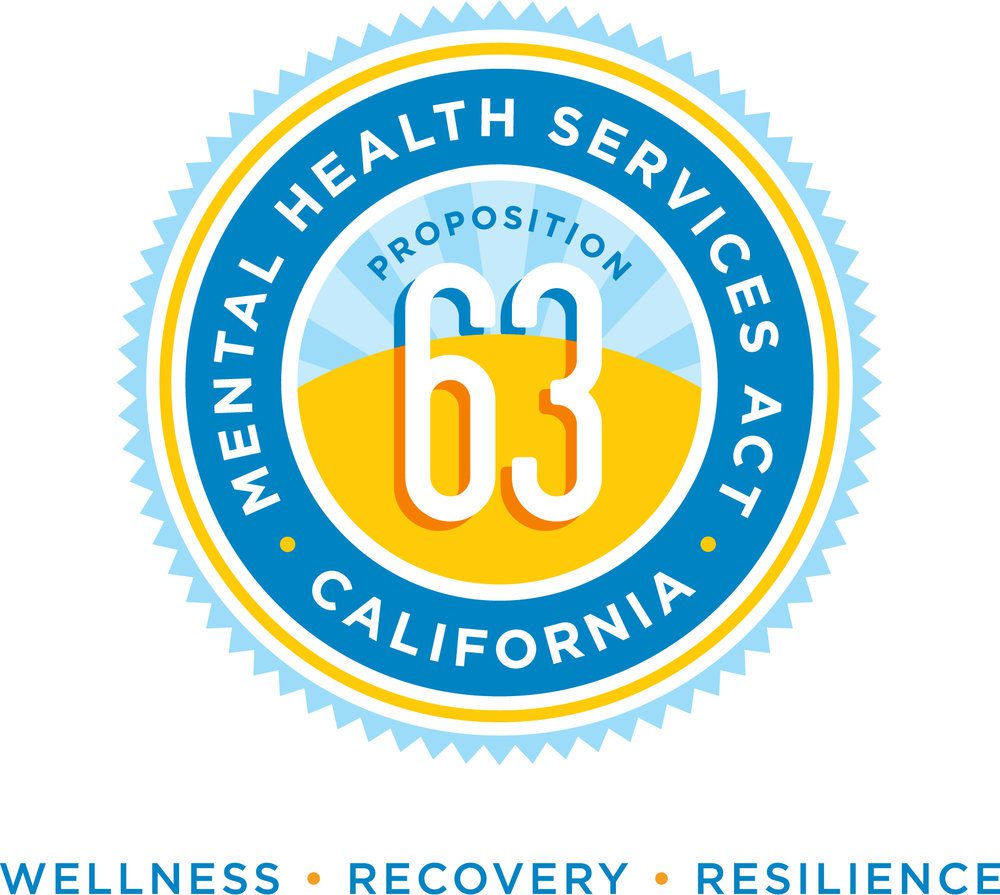California Mental Health Services Act (MHSA)
The MHSA was passed by California voters in 2004 and is funded by a one percent income tax on personal income in excess of $1 million per year. It is designed to expand and transform California’s behavioral health system to better serve individuals with, and at risk of, serious mental health issues, and their families. MHSA addresses a broad continuum of prevention, early intervention, and service needs and the necessary infrastructure, technology, and training elements that effectively support the public behavioral health system.
MHSA’s Overview
The purpose of Proposition 63 is not only to attend to individuals with serious mental illness, but to also reduce the impact of untreated serious mental illness on individuals, families, and state and local budgets. Expansion of innovative and successful service delivery programs is carried out, which includes accomplished approaches for underserved populations. Not only are the available state funds intended to provide services not covered by insurance or federally sponsored programs, but to also ensure that expenditures are cost-effective, and that provided services are following recommended best practices.
Revenue generated from the 1% tax is deposited into the MHSF annually. The 2017–18 Governor’s Budget indicates approximately $1.807 billion was deposited into the MHSF in FY 2015–16. The 2017–18 Governor’s Budget also projects that $1.864 billion will be deposited into the MHSF in FY 2016–17, and $1.888 billion will be deposited into the MHSF in FY 2017–18. To see additional budget details, the Mental Health Services Act Expenditure Report – Governor’s Budget for the current year is available on the California Department of Health Care Services’ website at www.dhcs.ca.gov.
The MHSA addresses a broad continuum of prevention, early intervention, and service needs as well as provides funding for infrastructure, technology, and training for the community mental health system. The MHSA specifies five required components:
- CSS (Community Services and Supports) involves the funding of direct services to individuals with severe mental illness.
- CFTN (Capital Facilities and Technological Needs) makes provision for building projects and improvement of mental health services delivery by increasing technological capacity through funding.
- WET (Workforce, Education, and Training) includes providing funds to improve the capacity of the mental health workforce.
- PEI (Prevention and Early Intervention) serves to allocate an investment of 20% of the MHSA funding of outreach programs for families and providers to recognize early signs of mental illness.
- INN (Innovation) involves the funding and evaluation of new approaches to increase access to underserved communities, promotion of interagency collaboration, and increase the overall quality of mental health services.
Additionally, California has developed a set of guiding principles that are the benchmark for the implementation of the MHSA Community and Supports component, which is tasked with changing the existing public mental health system via:
- Consumer and Family Participation and Involvement
- Programs and Services
- Age-Specific Needs
- Community Partnership
- Cultural Competence
- Outcomes and Accountability
- Taking a Comprehensive Viewpoint
The MHSA strives to reach broadly into all California communities to address a breadth of public mental health concerns. To learn more about the California Mental Health Services Act, please visit the resources below.
State Department of Mental Health (DMH)
While the county mental health departments are involved in the actual implementation of MHSA programs, the MHSA mandates that several entities support or oversee the counties. These include the State Department of Mental Health (DMH) and the Mental Health Services Oversight and Accountability Commission (MHSOAC).
You might be also interested to read about:
EVERYTHING YOU NEED TO KNOW ABOUT THE LOS ANGELES DEPARTMENT OF MENTAL HEALTH
Other Financing Programs
At Overland IOP and PHP, we are dedicated to helping people transform their lives. We have financing programs available to make sure nothing stands in the way to have the opportunity to receive the treatment you need. We offer a healthcare financing program through CareCredit, to assure that as many people as possible can begin the path to healing and once again lead productive lives. CareCredit is a unique lender in the field of medical loans. CareCredit helps make the health, wellness, and beauty treatments and procedures you want possible today.
HOW TO APPLY?
Under state law, providers in CA may not submit credit applications on behalf of others. Instead, individuals can apply for CareCredit directly. The process is quick and easy. You will receive an immediate credit decision, and you can save time and effort:
Apply online using our custom link:
Apply Online
Apply by phone at Call 800-365-8295


The wonderful team at Overland IOP is immensely equipped to assist those that require rehabilitative services and mental health care. Overland IOP is an individual practice within the city of Los Angeles that prides itself in superior treatment and expertise when it comes to handling and caring for a wide range of mental health conditions. Overland IOP is also able to provide telehealth services to patients to alleviate the stress and any difficulties that may arise when it comes to staying on track with attending appointments and receiving the care that saves so many lives every single day. The Los Angeles Department of Mental Health has taken massive strides in demonstrating what it means to take care of its community and helping those that have a dire need for psychological and rehabilitative care, which is often not very affordable or easily accessible to the individuals that may need it the most. When the public is taken care of and acknowledged in this specific and important manner, everyone is able to benefit and thrive from it.
Published: April 12, 2022
Last Updated: April 12, 2022

Published: June 30, 2025
ABA Therapy Controversy: What Families Should Know in 2025
Autism prevalence has climbed to 1 in 36 U.S. children, and payers now reimburse up to 40 hours a week of Applied Behavior Analysis (ABA)—still the only intervention every state is required to cover. Despite the praise from pediatric associations, many autistic adults describe the same therapy as traumatic. Parents must navigate a maze of […]
Read more
Published: June 06, 2025
Ozempic and Alcohol: What You Should Know
Moderate alcohol use is generally permissible while on Demaglutide (Ozempic®/Wegovy®) or Tirzepatide (Mounjaro®, Zepbound®), though extra caution is wise due to blood-sugar variability and compounded GI side-effects. As for craving control, semaglutide—and potentially tirzepatide—shows promising but preliminary evidence of reducing alcohol consumption. Larger Phase III trials are under way, and FDA approval would be the […]
Read more
Published: May 23, 2025
Intensive Outpatient Program Duration
Intensive Outpatient Programs (IOPs) bridge the gap between full-time residential care and traditional outpatient services. Designed for individuals who require more structured support than weekly therapy but do not need 24-hour supervision, IOPs offer flexibility—letting clients continue to work, attend school, or care for family while engaging in an intensive treatment schedule. Overland IOP in […]
Read more

